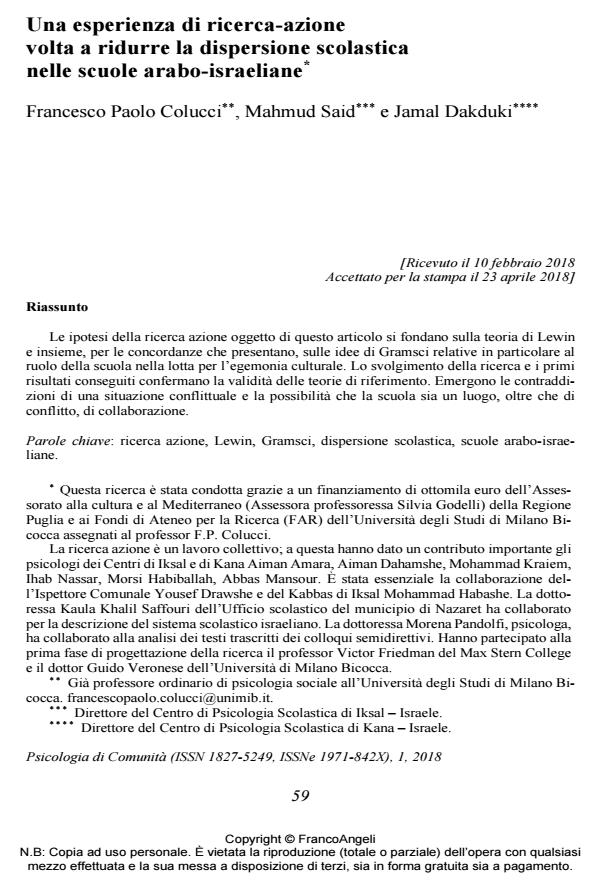An action research experience aimed at reducing the disruption in Arab-Israeli schools
Journal title PSICOLOGIA DI COMUNITA’
Author/s Francesco Paolo Colucci, Mahmud Said, Jamal Dakduki
Publishing Year 2018 Issue 2018/1
Language Italian Pages 27 P. 59-85 File size 277 KB
DOI 10.3280/PSC2018-001005
DOI is like a bar code for intellectual property: to have more infomation
click here
Below, you can see the article first page
If you want to buy this article in PDF format, you can do it, following the instructions to buy download credits

FrancoAngeli is member of Publishers International Linking Association, Inc (PILA), a not-for-profit association which run the CrossRef service enabling links to and from online scholarly content.
The hypotheses of action research examined in this article are based on both Lewin’s theory and, due to the affinity between them, Gramsci’s ideas on in particular the role of school in the struggle for cultural hegemony. The carrying out of the research and its initial results support the validity of the theories referred to. What emerge are the contradictions in a situation of conflict and the possibility for school to be a place of collaboration as well as of conflict.
Keywords: Action research, Lewin, Gramsci, scholar disruption, arab-israeli schools.
Francesco Paolo Colucci, Mahmud Said, Jamal Dakduki, Una esperienza di ricerca-azione volta a ridurre la dispersione scolastica nelle scuole arabo-israeliane in "PSICOLOGIA DI COMUNITA’" 1/2018, pp 59-85, DOI: 10.3280/PSC2018-001005